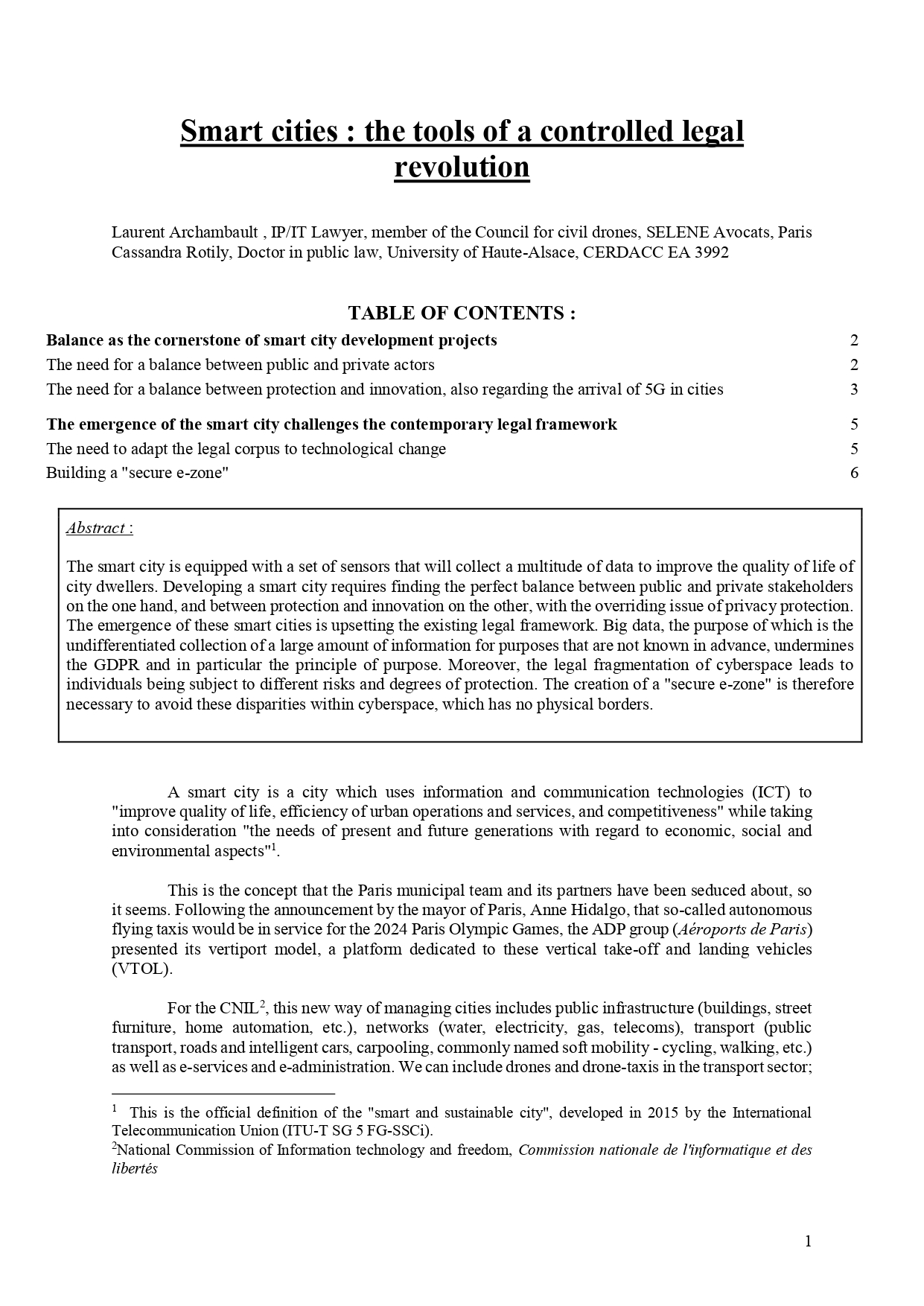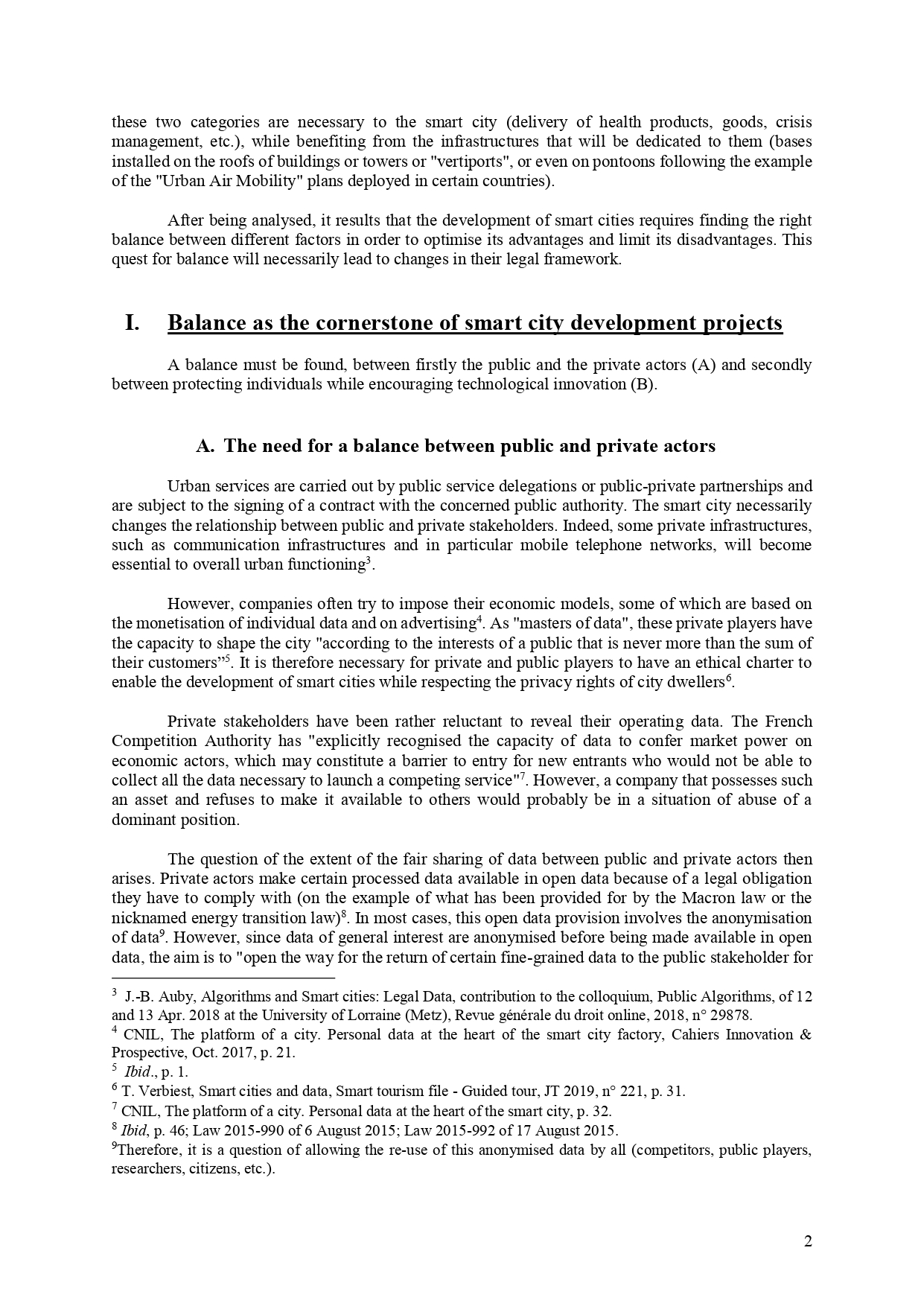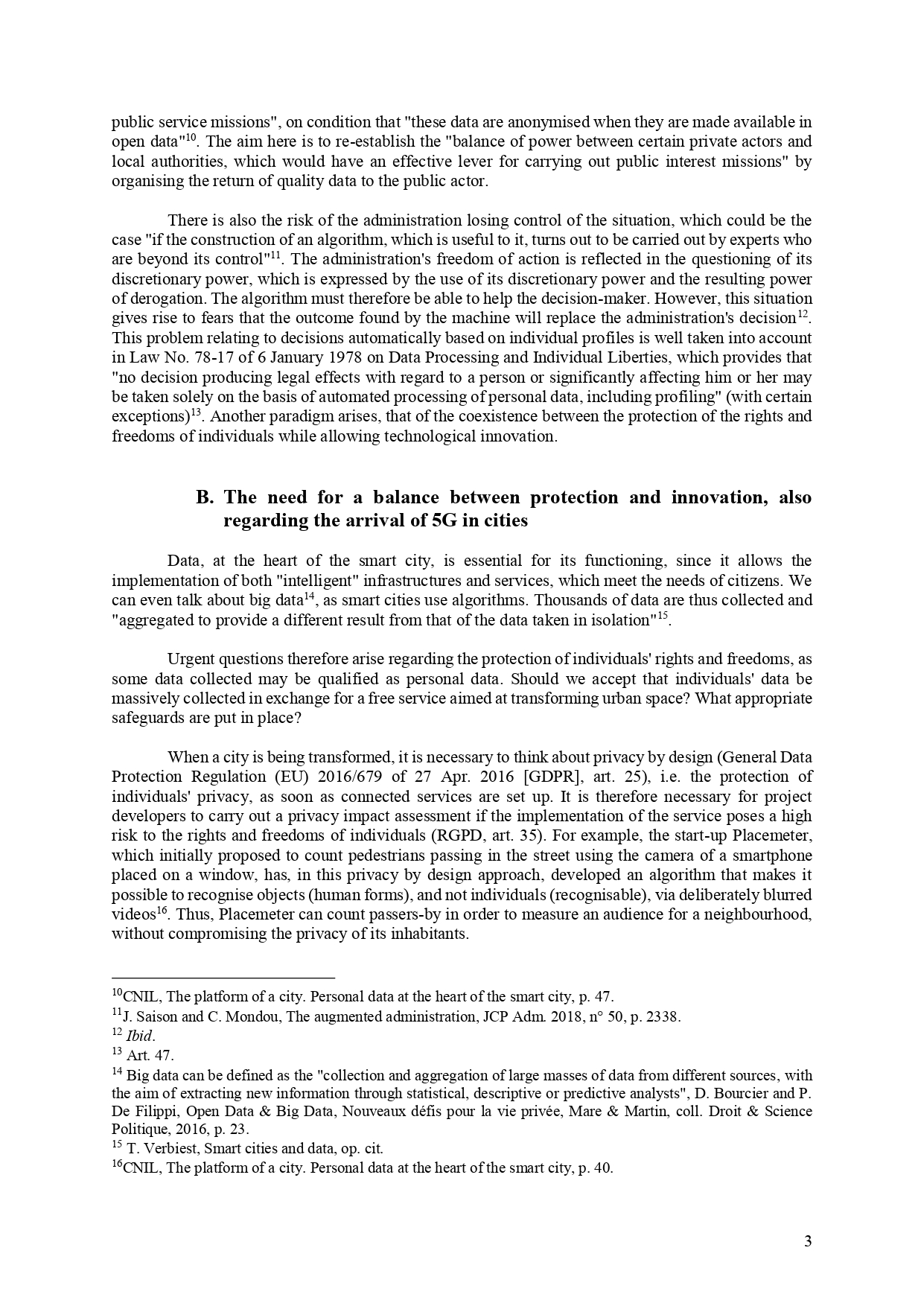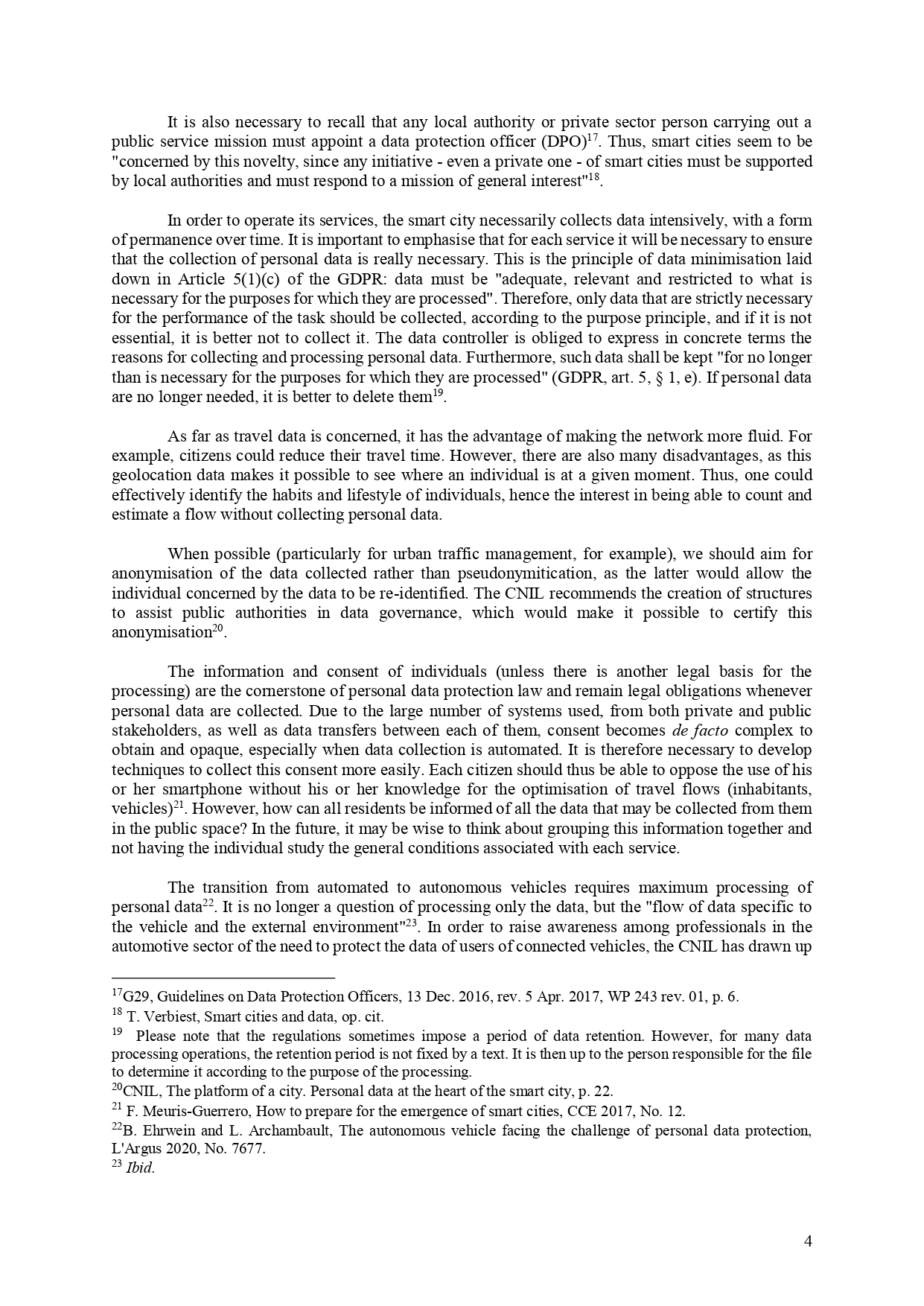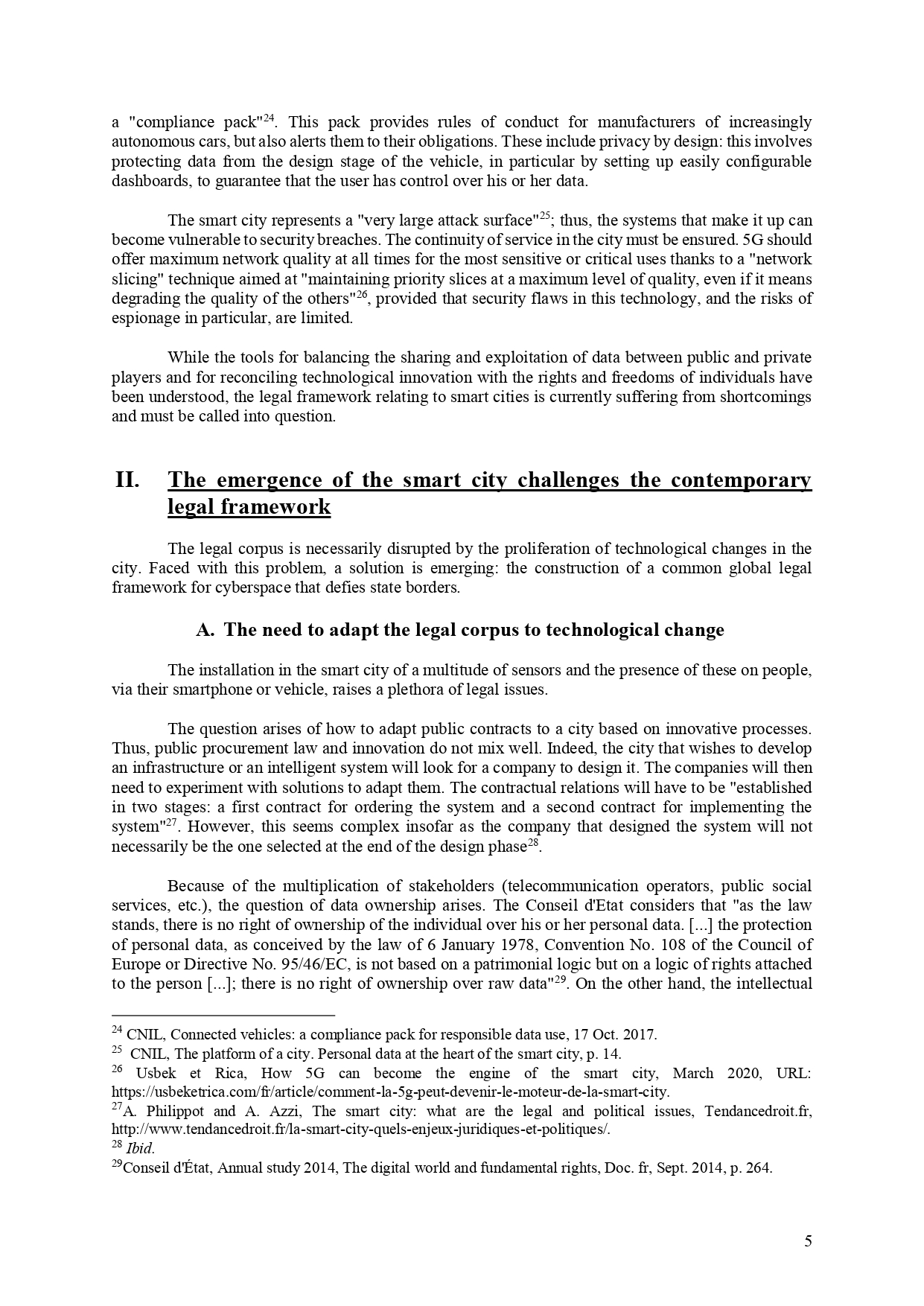Smart cities : the tools of a controlled legal revolution
Read our article on the smart city, also published in DALLOZ IP/IT in French.
This “smart city” is equipped with a set of sensors that will collect a multitude of data to improve the quality of life of city dwellers. Developing a smart city requires finding the perfect balance between public and private actors on the one hand, and between protection and innovation on the other, with the overriding issue of privacy protection. The emergence of these smart cities is upsetting the existing legal framework. Big data, the purpose of which is the undifferentiated collection of a large amount of information for purposes that are not known in advance, undermines the GDPR and in particular the principle of purpose. Moreover, the legal fragmentation of cyberspace leads to individuals being subject to different risks and degrees of protection. The creation of a “secure e-zone” is therefore necessary to avoid these disparities within cyberspace, which has no physical borders. Finally, let us not forget the contribution of air transport with the added value of drones (aircraft without a pilot on board), which will play a key role in supporting (in a manner adapted to periods of health crises) numerous urban applications such as the delivery of health products, goods, police missions, or even fire-fighting; moreover, for several months now, an experimental vertiport erected on the Pontoise airfield (95) has been used to test drone-taxis and all the components of this service: parking areas, equipment in terms of energy, maintenance, and even the route of future passengers.
Smart cities _ the tools of a controlled legal revolution
#SmartCity #Personnaldata #GDPR #CNIL #Privacy #Bigdata #Opendata #Drones #aerien #Conseilspourlesdronescivils #federation #EASA #DGAC #IATA #IFURTA #Llmdroitaerientoulouse #EBAA #3AF #SFDAS #FAA

